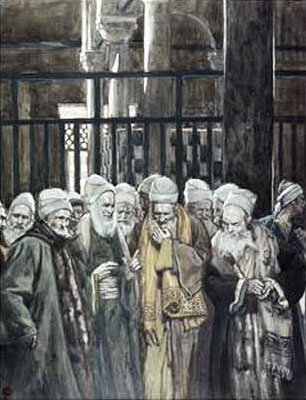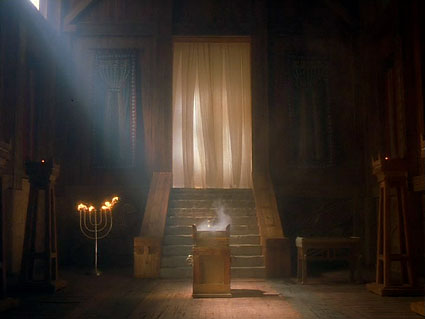Jul
1
2010

As I’ve mentioned here before, and in Totus Christus, the reference to the “man of sin” in Revelation is the sixth stanza of what is usually a seven stanza format. Only, in the case of this “Adam,” his seventh stanza is missing. [1] There is no Shekinah, no rest, no transfiguration, no bestowed glory. He crowned himself, so for him there would be no true crown.
Continue reading
Comments Off | tags: AD70, antichrist, Ark of the Covenant, Corinth, Covenant Theology, Herod, Literary Structure, Man of sin, Paul, Systematic typology | posted in Bible Matrix, Biblical Theology, Ethics, The Last Days, Totus Christus
Jul
24
2009

Time for another weird post I think. Here’s some thoughts on Genesis 2:
“This at last is bone of my bones and flesh of my flesh;
she shall be called Woman, because she was taken out of Man.”
Why the change from Adam and Eve to Ish and Isha? Perhaps because the words are symbolic, and symbols describe relationships.[1] There is the possibility that these words were used because they sound like eish (fire), regardless of their differing derivations (the jury is still out on this one after 6000 years). Jordan mentions that Adam was to be an Altar made of earth, and with his own blood shed comes the “fire” of Isha, the woman as the shining on the altar, the glory cloud on Mount Sinai. It certainly corresponds with the feasts. Adam “ascends” to headship over Eve in marriage (Firstfruits), and then he is to “open the Law” to Eve and fill her with light (Pentecost), which he did, but failed to repeat the Law (Trumpets) after she was tested. Atonement followed.
Continue reading
2 comments | tags: AD70, Adam, breastplate, Eve, Feasts, Genesis, Greater Eve, Incense Altar, Lampstand, Man of sin, Scavengers, Tabernacle, Temple | posted in Biblical Theology
Apr
8
2009
“…and I came to Jerusalem and discovered the evil that Eliashib had done for Tobiah, in preparing a room for him in the courts of the house of God. And it grieved me bitterly; therefore I threw all the household goods of Tobiah out of the room. Then I commanded them to cleanse the rooms; and I brought back into them the articles of the house of God, with the grain offering and the frankincense.” Nehemiah 13:7-9
After the failure of Israel’s kings and their adulterous priesthood, God established new worship in the “wilderness” of Babylon under Daniel and Ezekiel. When Babylon fell, He brought His new Jerusalem, like a pure bride, back to the mountain of God.
Continue reading
Comments Off | tags: Apostasy, Compromise, Daniel, Ezekiel, Ezra, Man of sin, Nehemiah, Priesthood | posted in The Restoration Era



























